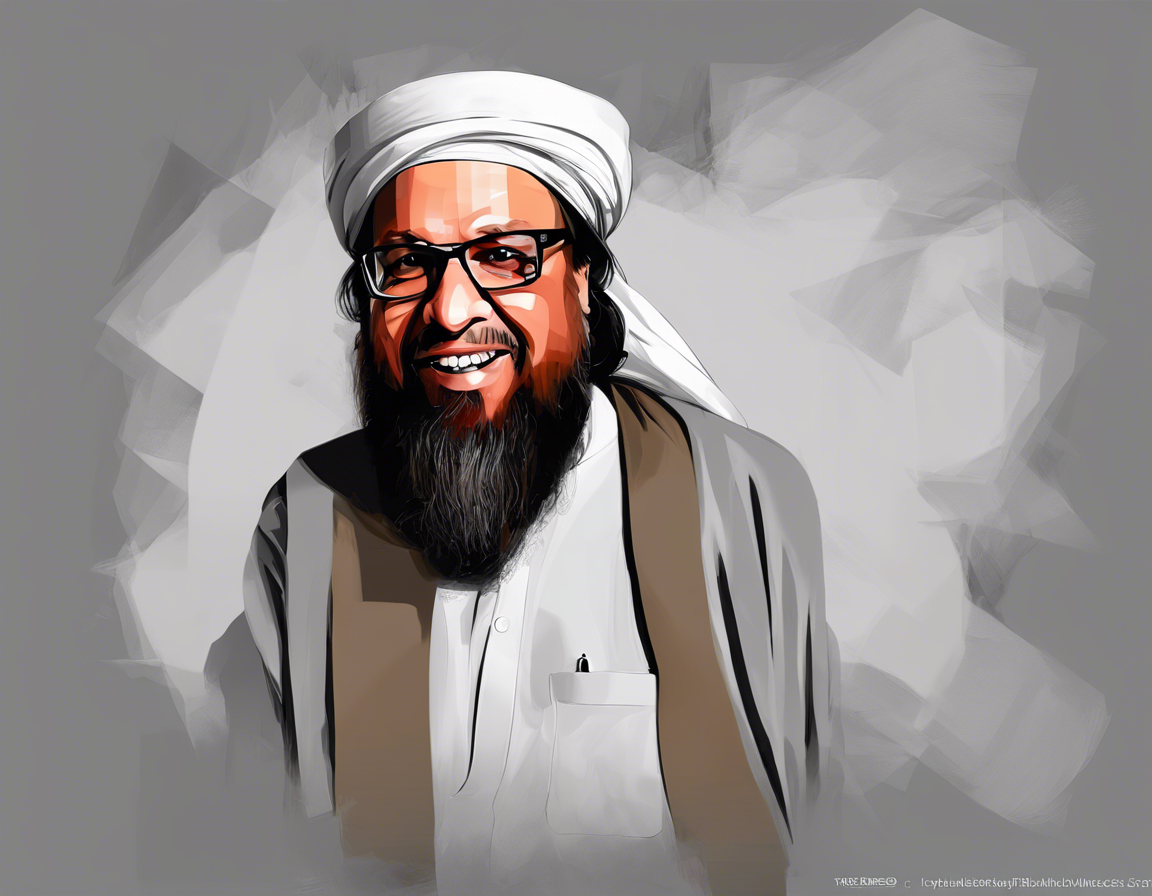Hafiz Saeed is a name that has stirred up controversies and debates in the global political landscape for many years. As the founder of the terrorist organization Lashkar-e-Taiba (LeT) and the chief of the Jamaat-ud-Dawa (JuD), Hafiz Saeed has been implicated in various terrorist activities and has been designated as a terrorist by the United Nations, the United States, the European Union, and other countries.
Who is Hafiz Saeed?
Hafiz Saeed is a Pakistani Islamist militant and religious leader who founded Lashkar-e-Taiba in the late 1980s with the support of Pakistan’s intelligence agency, the Inter-Services Intelligence (ISI). LeT is known for carrying out numerous terrorist attacks in the Indian state of Jammu and Kashmir and other parts of India.
Terrorist Activities and Accusations
One of the most infamous incidents linked to Hafiz Saeed is the 2008 Mumbai attacks, where 10 gunmen associated with LeT carried out a series of coordinated shootings and bombings across Mumbai, killing 166 people and injuring hundreds more. The attacks brought international attention to Saeed’s involvement in terrorism and fueled calls for his prosecution.
Political and Social Influence
Despite being a designated terrorist, Hafiz Saeed has maintained a significant presence in Pakistani politics and society. He has openly conducted political rallies, charity events, and public appearances, portraying himself as a religious leader and philanthropist while promoting anti-India and anti-Western rhetoric that resonates with some segments of the population.
International Designations and Consequences
The United Nations Security Council designated Hafiz Saeed as a global terrorist in December 2008, citing his links to Al-Qaeda and his role in supporting terrorism. The U.S. government has placed a $10 million bounty on Saeed for his alleged involvement in terrorism, and the European Union has also designated him as a terrorist.
Legal Battles and Controversies
Despite facing multiple terrorism-related charges in Pakistani courts, Hafiz Saeed has evaded significant legal consequences due to the lack of concrete evidence and the perceived support he enjoys from elements within the Pakistani establishment. Critics have accused the Pakistani government of turning a blind eye to Saeed’s activities and allowing him to operate with impunity.
Global Pressure and Diplomatic Relations
The controversies surrounding Hafiz Saeed have strained Pakistan’s relations with other countries, particularly India and the United States. India has repeatedly called on Pakistan to take decisive action against Saeed and other terrorist elements operating on its soil, while the U.S. has pressured Pakistan to address the issue of terrorism more effectively to secure continued military and financial assistance.
Public Perception and Support
Despite his alleged involvement in terrorist activities, Hafiz Saeed continues to enjoy a degree of public support in Pakistan, particularly among conservative and Islamist factions that view him as a champion of Islam and a defender of Pakistani sovereignty. His charitable work through JuD and his vocal opposition to Indian policies in Kashmir have contributed to his popularity in certain sections of society.
Future Implications and Challenges
The controversies surrounding Hafiz Saeed are likely to persist in the foreseeable future, given his entrenched position in Pakistani politics and society. Resolving the issue of Saeed and organizations like LeT remains a significant challenge for Pakistan’s government, as it grapples with balancing domestic political considerations, international pressure, and the need to combat terrorism effectively.
Frequently Asked Questions (FAQs)
- Is Hafiz Saeed still actively involved in terrorist activities?
-
While Hafiz Saeed has denied involvement in terrorism, his connections to LeT and other militant groups raise concerns about his ongoing role in promoting extremist ideologies and violence.
-
Why hasn’t Pakistan taken stronger action against Hafiz Saeed?
-
The issue of Hafiz Saeed is complex, with elements of political, religious, and security considerations at play. Critics argue that Pakistan’s reluctance to confront Saeed stems from a desire to maintain influence over militant groups for strategic purposes.
-
What are the implications of Hafiz Saeed’s continued presence in Pakistani society?
-
Hafiz Saeed’s influence perpetuates extremist narratives, exacerbates tensions with neighboring countries, and undermines efforts to combat terrorism effectively. His presence poses a challenge to Pakistan’s reputation and international relations.
-
How do other countries view Hafiz Saeed and his organizations?
-
Countries like India and the U.S. have long condemned Hafiz Saeed and LeT for their involvement in terrorist activities. The international community views Saeed as a destabilizing figure and a threat to regional security.
-
What actions can be taken to address the Hafiz Saeed issue effectively?
- To tackle the Hafiz Saeed problem, Pakistan must demonstrate a genuine commitment to eradicating terrorism by cracking down on militant groups, dismantling their support networks, and prosecuting individuals involved in terrorist activities.
In conclusion, the controversies surrounding Hafiz Saeed reflect the complex dynamics of terrorism, politics, and society in South Asia. As long as individuals like Saeed continue to operate with impunity, the region remains vulnerable to extremism and violence, underscoring the urgent need for concerted international efforts to address these challenges comprehensively.
